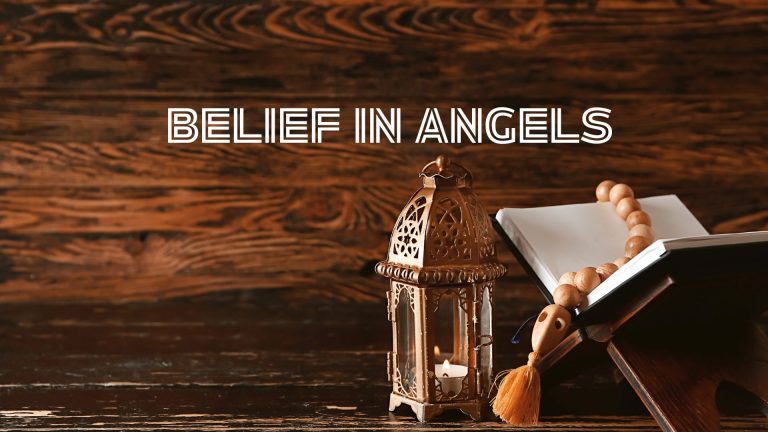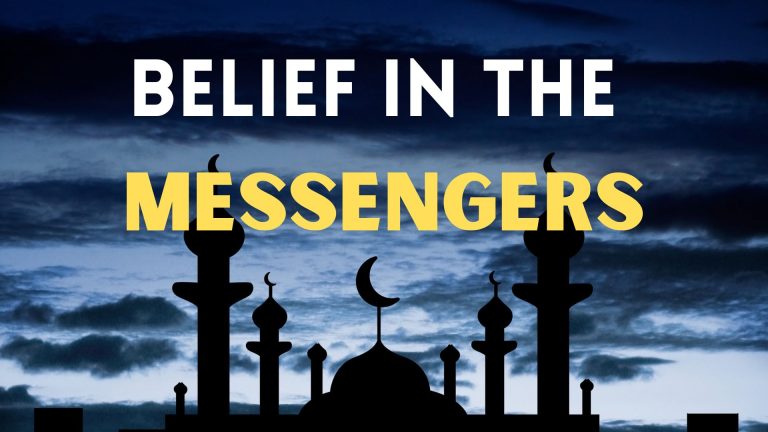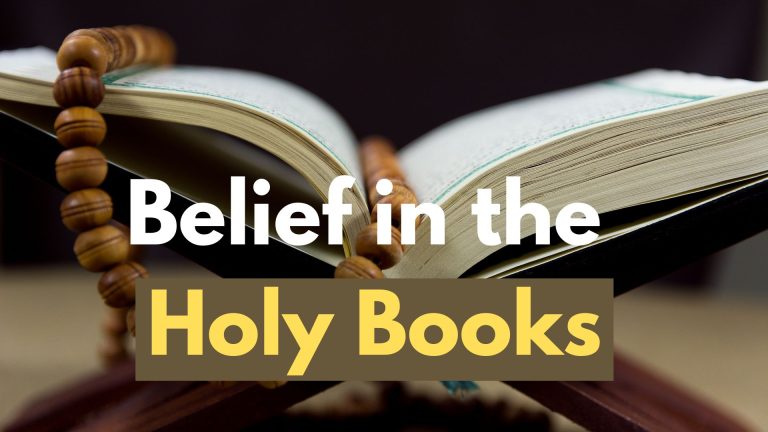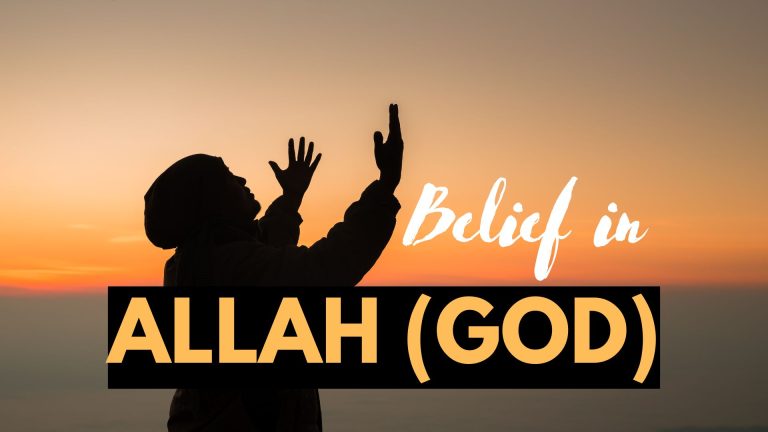Belief in the Last Day
Within the core tenets of Islam, Belief in the Last Day holds immense significance. The Quran, the religion’s holy book, repeatedly underscores this belief, often mentioning it in connection with faith in Allah, the one and only God. These combined references total around twenty verses, highlighting the importance of this concept. The Quran portrays the Last Day as a pivotal moment for all humankind, a day far exceeding the scope and experience of our earthly existence.
What Will Happen on the Last Day According to Islam?
According to Islam, the Last Day will be a huge deal. It involves things like an angel blowing a trumpet, the world ending, everyone coming back to life for judgment, and a day when everyone’s deeds will be reviewed. These events are described in the Quran and the teachings of Prophet Muhammad.

What Does it Mean?
The Holy Quran and the Prophet Muhammad PBUH talked about the Last Day using different words. Believing in the Last Day means believing in a specific day and everything that will happen afterward, as mentioned in the Quran and the Prophet’s teachings. Even though nobody knows the exact day, the Quran and the Prophet have given us many signs about it.
When the angel Israfil blows a special trumpet as ordered by God, it will mark the end of the world. This day will be incredibly frightening and huge, with the entire universe breaking apart, causing everyone to die. The Quran describes it as a day when “the earth with all its mountains will be lifted and crushed into pieces with a single stroke” (Quran, al-haqqa: 13-15).
When the trumpet is blown again, everyone will be brought back to life to face judgment from God. They will come out of their graves without any clothes or shoes, and they will look around in wonder. Afterward, they will either be rewarded with eternal happiness or punished based on their actions on earth.
The Quran says, “Do they not think that they will be resurrected for a tremendous day, the day when mankind will stand before the lord of the worlds?” (Quran, al-Mutaffifin: 5-6). This day is also called the Day of Judgment.
The events of the Last Day and what comes after it will be incredibly terrifying, like nothing mankind has ever experienced before, except for those who are blessed. The Quran describes how even a caring mother will be too frightened to look after her child, and pregnant women will give birth prematurely.
People will seem confused and disoriented, even though they’re not intoxicated. However, true believers will receive great blessings, like being shaded by the Throne of God and drinking from a special fountain called Hawd al-Kawthar.
Why is Belief in the Last Day Important in Islam?
Faith in the Last Day is really important in Islam because it helps Muslims understand the purpose of life and reminds them that they will be accountable for their actions. The Quran talks a lot about this belief, connecting it with faith in God and showing how it shapes the way Muslims live their lives.
Benefits of Believing in the Last Day
Faith in the Last Day offers a lot of benefits to Muslims, shaping their worldview and guiding their actions. These benefits include:
1. Living a Righteous Life
Believing in the Last Day motivates a Muslim to lead a virtuous life according to Allah’s teachings, avoiding wrongdoing. This belief instills a sense of accountability for every action, fostering fear of Allah and conscientious behavior.
2. Endurance Through Hardships
It enables a Muslim to endure trials and tribulations, viewing them as temporary challenges. With patience, they anticipate Allah’s eventual relief and anticipate abundant rewards in the Hereafter for their perseverance.
3. Contentment and Satisfaction
It cultivates contentment, eliminating despair over life’s ups and downs and fleeting pleasures. Muslims find solace in the certainty that ultimate justice will prevail on Judgment Day, where even the smallest injustices will be rectified. This assurance brings peace and reassurance in the face of adversity.

4. Assurance of Divine Justice
It assures individuals that every action will be justly weighed on the scales of ultimate justice. Knowing that even the smallest injustices will be rectified and compensated ensures a sense of fairness and alleviates worries about wrongdoing going unpunished.
5. Moral Accountability
It reinforces the concept of moral accountability. Muslims believe that they will be judged based on their actions in this life, leading to either reward or punishment in the Hereafter. This belief encourages them to act ethically and responsibly in all aspects of life, knowing that they will be answerable for their deeds.
6. Preparation for the Hereafter
It serves as a reminder to Muslims to prepare for the Hereafter. It encourages them to focus on actions that will lead to success in the afterlife, such as performing good deeds, seeking forgiveness for sins, and maintaining strong faith in Allah.
7. Impact on Daily Life
The faith in the Last Day has a significant impact on the daily lives of Muslims. It influences their decisions, priorities, and behaviors as they strive to align their actions with the teachings of Islam in preparation for the Hereafter.
8. Encouragement for Good Deeds
Faith in the Last Day motivates Muslims to engage in acts of kindness, charity, and righteousness. They believe that these actions will be rewarded in the Hereafter, leading to eternal happiness and closeness to Allah.
9. Reminder of Transience in the World
The faith in the Last Day reminds Muslims of the temporary nature of this world. It encourages them to focus on the eternal life of the Hereafter rather than becoming overly attached to the fleeting pleasures and possessions of this world.

10. Connection to Other Beliefs in Islam
Faith in the Last Day is interconnected with other core beliefs in Islam, such as belief in Allah, the Prophets, the Quran, and the angels. It forms an integral part of the broader Islamic faith, providing a comprehensive worldview and guiding principles for Muslims to follow.
FAQs
Is faith in the Last Day exclusive to Islam?
While belief in a final judgment day is common across many religions, the Islamic belief in the Last Day includes specific events and details mentioned in the Quran. These details are further elaborated upon in the teachings of Prophet Muhammad.
How does faith in the Last Day influence Islamic practices?
Belief in the Last Day encourages Muslims to perform good deeds, seek forgiveness for sins, and live a righteous life in preparation for the Hereafter. It also instills a sense of accountability for one’s actions.
What is the significance of the signs of the Last Day in Islam?
The signs of the Last Day, as mentioned in Islamic teachings, serve as reminders of the temporary nature of this world and the importance of preparing for the Hereafter. They encourage believers to remain steadfast in their faith and strive for righteousness.
Final Words
Belief in the Last Day is a fundamental tenet of Islam, emphasizing the importance of accountability, preparation for the Hereafter, and moral integrity in the life of a Muslim. It provides a framework for understanding the transient nature of this world and the ultimate justice that will be served on the Day of Judgment. Through faith in the Last Day, Muslims find motivation to live a righteous life, endure hardships with patience, and seek Allah’s mercy and forgiveness.





